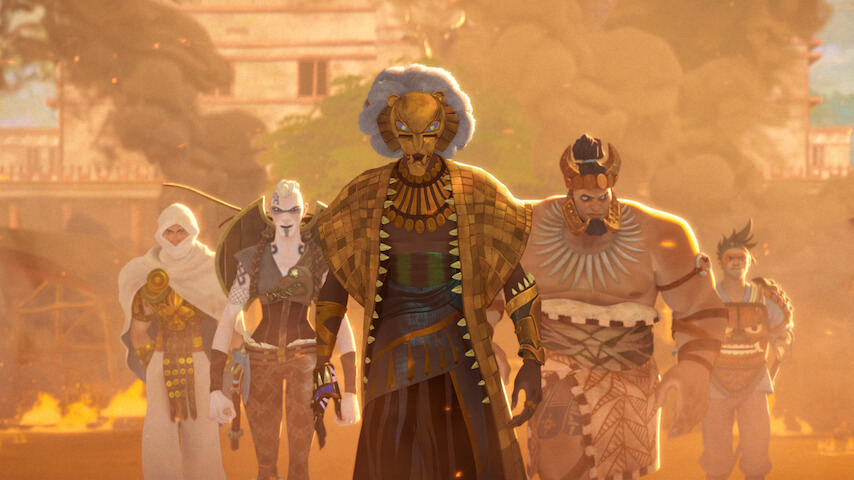Eyes Of Wakanda is thought-provoking, entertaining, and strikingly animated
The Black Panther spin-off examines the costs of MCU isolationism.
Image: Marvel
The nation of Wakanda remains one of the most compelling corners of the Marvel Cinematic Universe. Gifted with an asteroid’s worth of the sci-fi metal vibranium in its far-distant past, those in the African nation seized upon the material’s miraculous qualities to craft unthinkably advanced technologies. At the same time, they carefully guarded their society’s capabilities and culture through the centuries, leaving the rest of the world completely unaware of the existence of this Afrofuturist wonderland.
It’s a fascinating idea, one that the comics have done much to develop since Stan Lee and Jack Kirby debuted T’Challa, Wakanda’s king and resident superhero Black Panther in 1966. Especially under the creative guidance of subsequent Black writers like Christopher Priest, Reginald Hudlin, and Ta-Nehisi Coates, Wakanda’s unique position in Marvel’s global picture became more complexly rendered. And then Ryan Coogler brought the Black Panther saga to the screen with impressive imagination and nuance.
As the Wakandans only grudgingly opened their society to the larger world’s gaze, bigger questions came into focus, too. Eyes Of Wakanda, the animated miniseries that kicks off the TV side of Marvel’s Phase Six, offers insight into the true nature and consequences of Wakanda’s isolationism and rigid secrecy. (Unlike previous Marvel animated shows, this one is firmly set in the MCU’s “sacred timeline.”)
Developed by Coogler and helmed by showrunner Todd Harris, Eyes Of Wakanda spans more than 600 years in its four half-hour episodes. Starting out on the seas surrounding 13th century Crete with stops at the Trojan War, 15th century China, and late 19th century Ethiopia (with a final episode detour into yet another possible MCU future), the series unfolds as an anthology on the theme of duty and sacrifice, with its talented voice cast doing a lot to flesh things out.
Centered on the Hatut Zaraze (or War Dogs), described by Harris as Wakanda’s version of the CIA, Eyes Of Wakanda examines the toll their society’s policies take on those tasked with preserving that secrecy—by any means possible—while edging around what Wakanda’s withdrawal from the sweep of world history says about its national character. On the one hand, their hoarding of such a world-changing resource smacks of selfishness. On the other (just think of non-Wakandan history), they’ve got a point.
Animated in a striking, illustrative manner (artist Ernie Barnes’ dynamic, attenuated figures are cited as an inspiration), the series apparently had more freedom to break from the MCU’s house style. Images of the disgraced Dora Milaje warrior Noni (voiced by Winnie Harlow in the opening episode) and the deep cover Trojan agent Memnon (Larry Herron) in the second propel their stories through distinct and illuminating physicalities. The fight scenes, when they inevitably come, are crisp and imaginative, Noni’s flowing improvisation contrasting with the bruiser Memnon’s implacable solidity. Throughout, there’s a picture-book revelry in Black physicality and beauty that expressionistically celebrates the art while never halting the action.
 Keep scrolling for more great stories.
Keep scrolling for more great stories.
